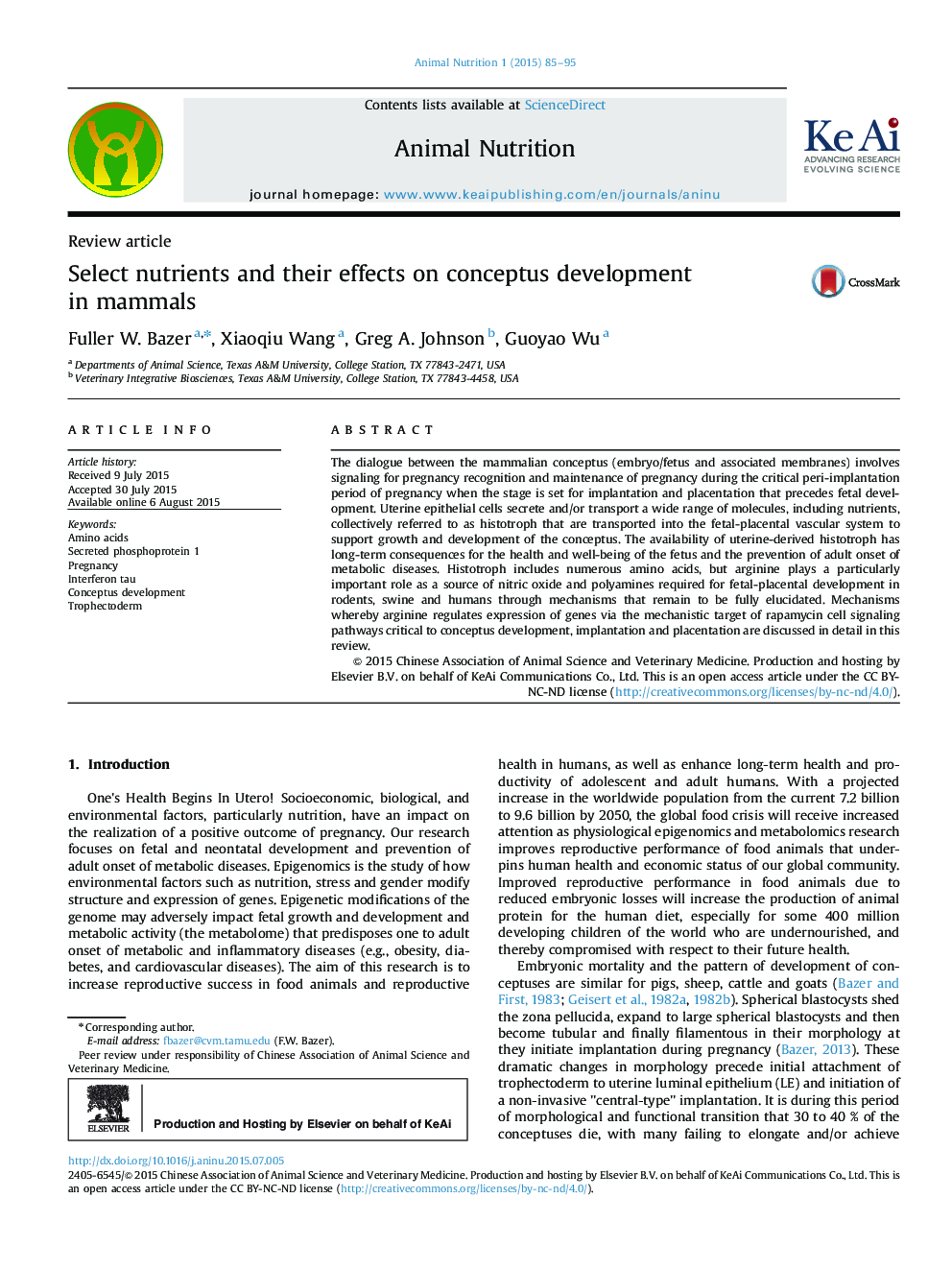| Article ID | Journal | Published Year | Pages | File Type |
|---|---|---|---|---|
| 4522253 | Animal Nutrition | 2015 | 11 Pages |
The dialogue between the mammalian conceptus (embryo/fetus and associated membranes) involves signaling for pregnancy recognition and maintenance of pregnancy during the critical peri-implantation period of pregnancy when the stage is set for implantation and placentation that precedes fetal development. Uterine epithelial cells secrete and/or transport a wide range of molecules, including nutrients, collectively referred to as histotroph that are transported into the fetal-placental vascular system to support growth and development of the conceptus. The availability of uterine-derived histotroph has long-term consequences for the health and well-being of the fetus and the prevention of adult onset of metabolic diseases. Histotroph includes numerous amino acids, but arginine plays a particularly important role as a source of nitric oxide and polyamines required for fetal-placental development in rodents, swine and humans through mechanisms that remain to be fully elucidated. Mechanisms whereby arginine regulates expression of genes via the mechanistic target of rapamycin cell signaling pathways critical to conceptus development, implantation and placentation are discussed in detail in this review.
